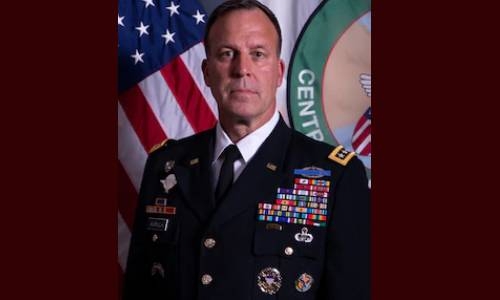Iran is the primary destabilising element in the region: US Central Command
TDT | Manama
The Daily Tribune – www.newsofbahrain.com
Reported by Julia Cassano
The US Central Command remains focused on strengthening relations and partnerships in the region as it continues to see Iran as the biggest threat to regional security and stability, said General Michael “Erik” Kurilla, US CENTCOM Commander.
In an emailed interview with The Daily Tribune, General Kurilla said: “Tehran is now shipping deadly UAVs (Unmanned Aerial Vehicles) and advanced weaponry to Russia, supplying and supporting Russia’s illegal war in Ukraine.”
“Iran is the primary destabilising element in the region, and I have been consistent on that point,” Gen. Kurilla added. He said that this year marks the 40th anniversary of the formation of CENTCOM, noting that: “Iran was the primary concern for CENTCOM at its formation in 1983, and that remains the case today.
“However, Iran has sharply evolved its military capability over time, and Iran today is far more capable, technologically advanced, and militarily powerful than just five years ago. To combat this, we are strengthening partnerships.”
CENTCOM is employing innovative approaches to the threat posed by Iran. He added that innovative techniques, processes, concepts, and the implementation of new technology such as unmanned systems, artificial intelligence, and communications platforms would allow to maximise the effectiveness of counter-UAV and manned systems in the region currently.
Israel became the newest partner under CENTCOM in January last year, which Kurilla said presents tremendous opportunities to the Kingdom.
“Israel and our other partners throughout the region see shared threats, and new partnerships are forming, which only benefits regional security and stability.” General Kurilla mentioned the developments of Task Force 59, stating that TF59 concluded Digital Horizon three months ago, a large-scale demonstration to identify best-in-class unmanned and AI solutions for maritime deployment.
“In this exercise, Task Force 59 experimented in the Arabian Gulf with emerging unmanned vessels tied to AI platforms.” “Task force leaders evaluated with a combination of platforms that offer the greatest maritime domain awareness and are ready for operational deployment now,” he added.
US Central Command Commander, General Michael “Erik” Kurilla, highlighted international and regional partners’ efforts, especially the Kingdom of Bahrain, saying: “Task Force 59 teamed with Bahrain last year, and we have established a hub here along with one in Aqaba, Jordan.
“Just last October, the Royal Bahrain Naval Force participated in a naval drill in the Gulf where seven crewed ships from Saudi Arabia, Bahrain, the United Kingdom, and the United States teamed with unmanned systems.
This is one of many examples that underscore that our forces are realising the value of partnerships and innovation right now.” Gen. Kurilla confirmed that by the end of this year, Task Force 59 would bring together a fleet of over 100 unmanned surface and subsurface vessels operating together, communicating together, and providing maritime domain awareness to all participating militaries.
He added that at least 80 percent of these unmanned vessels would come from partnered forces. “The number of partnered countries continues to grow, and they are part of the TF59 operational force and part of the Task Force 59 staff.”
Now ten months into command, Gen. Kurilla, on his 13th trip to the region, points to the importance of commitment to partnerships and face-to-face communication. “The insight gleaned in these visits informed by strategic approach, best summarised in three words: people, partners, and innovation,” he said.
“Across CENTCOM, we cultivate, strengthen, and lean on partnerships. We are focused on developing deep, abiding partnerships that will allow us to address a range of threats.
Related Posts

